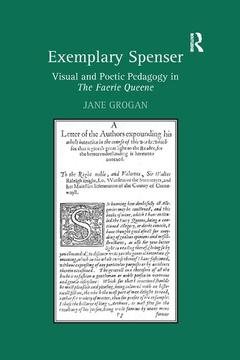Description
Exemplary Spenser
Visual and Poetic Pedagogy in The Faerie Queene
Author: Grogan Jane
Language: English
Subjects for Exemplary Spenser:
Keywords
Faerie Queene; faerie; Book III; queene; Historicall Fiction; spensers; Young Men; poem; False Florimell; historicall; Aquinas; fiction; St Thomas Aquinas; readers; Didactic Poetics; visual; Blatant Beast; episteme; Book VI; knights; Courtesy Tradition; Poet Historicall; Salvage Man; Colin Clout; Wild Man; Courtesy Books; Visual Episteme; Spenserian Poetics; Didactic Poetry; Courtesy Theory; Spenser’s Letter; Civil Conversation; Spenser’s Readers; Familiar Letter; Britomart’s Quest
Approximative price 58.78 €
In Print (Delivery period: 14 days).
Add to cartPublication date: 09-2018
· 15.6x23.4 cm · Paperback
Approximative price 192.54 €
Subject to availability at the publisher.
Add to cartPublication date: 09-2009
· 15.6x23.4 cm · Paperback
Description
/li>Contents
/li>Biography
/li>




